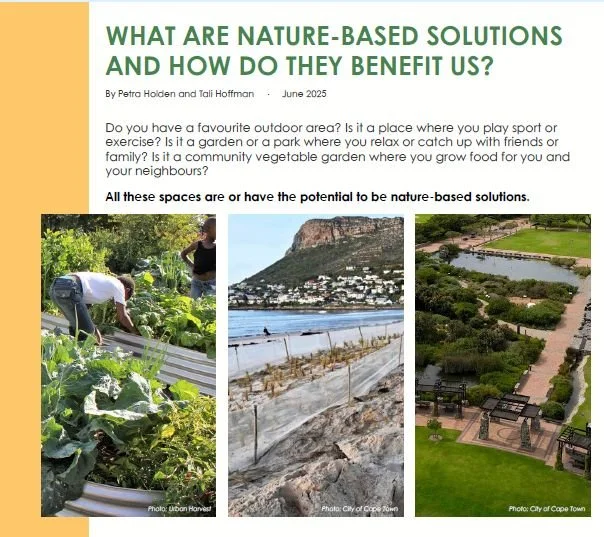What are nature-based solutions and how do they benefit us?
Nature-based solutions are actions or interventions where people work or connect with nature to provide benefits for people (including themselves) and for plants and animals (biodiversity). When used to help people adapt to climate change or to reduce climate risk, they are called nature-based solutions for climate adaptation – also known as ecosystem-based adaptation.
Nature-based solutions can be championed and implemented by individuals, groups, or through projects, programmes or networks. Regardless of their purpose and who implements them, nature-based solutions take many forms.
In this knowledge brief, researchers at Tuwe Pamoja outline four types of NbS to illustrate how they can support climate change adaptation by reducing people’s exposure, sensitivity and vulnerability to climate impacts, and by increasing their adaptive capacity. The brief also gives guidance on how to measure progress of NbS use, suggesting how implementers can consider where they are coming from and where they are heading, and how these solutions can be designed and carried out in ways that are fair, respectful, socially responsive and socially inclusive.
Coordinated and managed by researchers from the African Climate and Development Initiative (ACDI) at the University of Cape Town, including those at the PiNC Lab, Tuwe Pamoja aims to Strengthening capacity in African cities to harness locally-driven, equitable nature-based solutions for climate resilient urban development.
The name Tuwe Pamoja means “Let’s be together” in Swahili, signifying its aim to bring together city residents, officials, NGOs, community groups and researchers from four African cities. The goal is to strengthen the capacities of city actors to plan and implement climate resilient nature-based solutions that are locally driven, effective, and equitable for all urban residents.
Over the course of Tuwe project, it is anticipated that this brief will be further developed with knowledge products that focus specifically on NbS in informal settlements along with examples drawn directly from data collected by its researchers.
View the brief here or explore it in full below.

